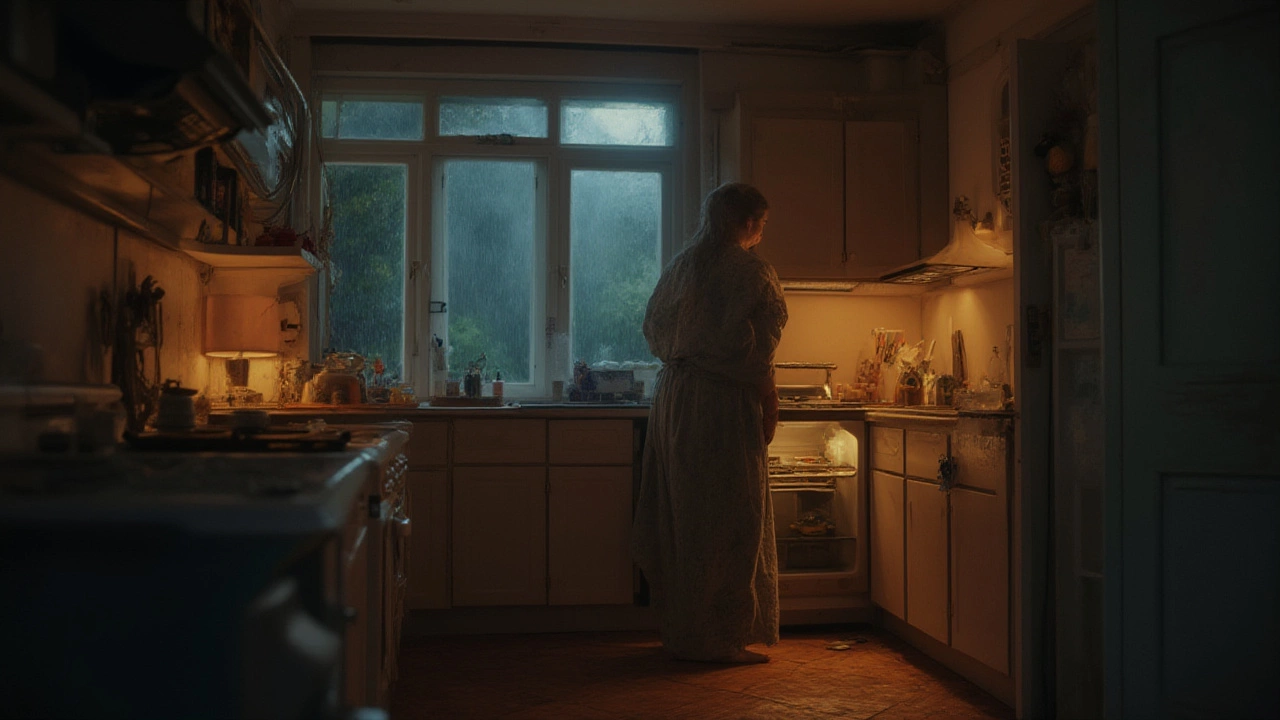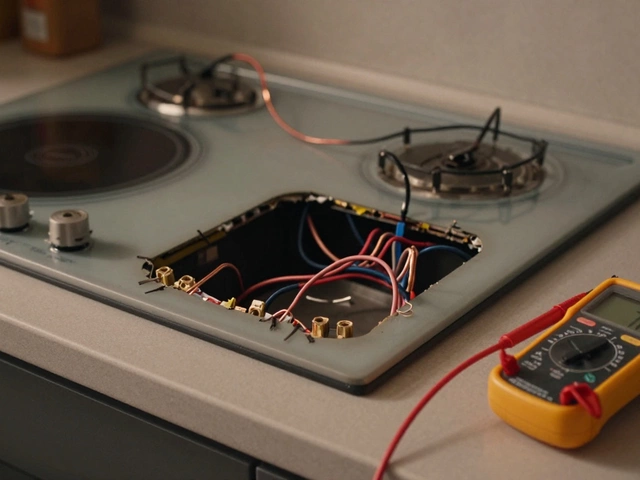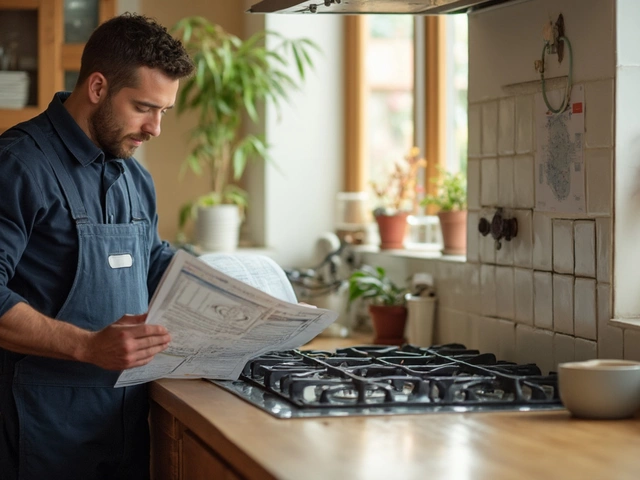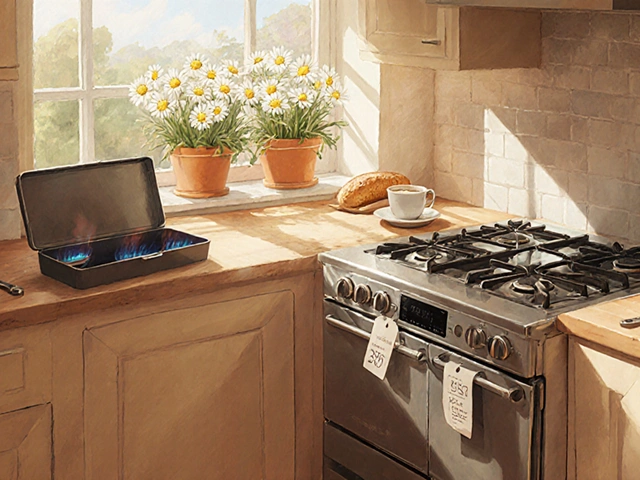Accidentally walking out of the house with the oven still heating is more common than you think. The heat builds up, the electricity keeps drawing power, and before you know it you could be facing a burnt kitchen, a raised electricity bill, or even a fire. Below we break down the real risks, the quick actions you should take, and the habits that keep you safe.
When an electric oven stays on, the heating element continues to glow at full power. That means two things: a lot of heat fills the oven cavity and a constant stream of electricity flows through the wiring. If anything inside the oven catches fire – a forgotten pizza crust, a plastic utensil, or even an old rag – the heat can fan the flames quickly. In addition, prolonged heating can warp the oven’s interior, damage the thermostat, and wear out the heating element faster than normal.
From a cost viewpoint, an oven left on for even an hour can use up to 2‑3 kWh of electricity. That’s a noticeable bump on your bill, and if it happens repeatedly you’ll be paying for wasted energy and a shorter appliance lifespan.
1. Turn it off immediately. Reach for the oven’s control knob or digital panel and hit the off or cancel button. If the oven has a “stop” or “cancel” key, use that – it cuts power straight to the element.
2. Open the door. Doing so releases hot air, cools the interior faster, and reduces the chance of a fire spreading.
3. Check for smoke or fire. Look inside for any signs of burning food, melted plastic, or smoke. If you see flame, close the door, keep the oven off, and call the fire brigade if it doesn’t die down.
4. Let it cool. Give the oven at least 30‑45 minutes to drop to a safe temperature before touching any internal parts.
5. Assess the damage. Once cool, test the oven by turning it on for a short cycle. If it heats normally, you’re probably fine; if the element stays cold or the thermostat seems off, call a professional.
Simple habits can stop most “oven left on” incidents. Set a kitchen timer every time you start cooking – even a 10‑minute reminder helps you remember to check the oven. Many modern ovens have a “stay‑on” reminder that beeps after a set period; enable it if your model supports it.
Place a sticky note on the oven knob or front panel with a quick “ON?” reminder. It sounds old‑school, but visual cues work wonders.
If you’ve got a smart oven, link it to your phone. You can receive push notifications when the oven is heating for longer than you expected.
Lastly, keep a fire blanket or a small kitchen fire extinguisher nearby. Knowing you have a safety tool can reduce panic if something does go wrong.
When in doubt, especially if the oven shows any odd smells, irregular heating, or error codes, don’t gamble. Our team at Bognor Regis Appliance Repair Experts can diagnose a faulty thermostat, replace a burnt element, or give you a full safety check. A quick call saves you from a possible fire and keeps your oven running efficiently for years.
Bottom line: turning off the oven right away, letting it cool, and checking for damage are the first steps. Pair those actions with timers, reminders, and smart‑home alerts, and you’ll rarely forget that oven is on again.

Leaving an electric oven on overnight sounds harmless, but it could spell real trouble. Learn the risks, facts, and safer options for your late-night cooking needs.

Electric ovens are handy, but they're not immune to problems. This article breaks down the most common faults people face, from ovens not heating properly to strange noises and error codes. You’ll get real tips on troubleshooting and signs when it’s time to call in the pros. Save time (and maybe some frustration) by knowing what to look out for. Find out why your oven might let you down and how to deal with it.

Replacing an electric hob isn't a DIY job. In the UK, it requires a qualified electrician for safety, legal compliance, and insurance reasons. Here's what you need to know before swapping your hob.

Wondering how long it takes to swap out an old boiler for a new one? This article spells out exactly how much time you’ll need, what really affects the timeline, and offers practical tips to speed things up. Get the full breakdown, including what you can do before installation day and how to avoid surprises. If you want your heat and hot water back fast, this guide is for you. Find out what to expect from your boiler replacement and how to stay one step ahead.

Thinking about swapping out your gas hob? Safety rules in the UK are strict, and there’s more to it than just unscrewing pipes. This article looks at whether you really need a gas engineer for the job, what could go wrong if you cut corners, how to pick the right pro, and little-known facts about what happens during an installation. It’s a no-nonsense breakdown for anyone facing a hob swap, putting your safety at the front of the queue.

Learn the typical cost of repairing a gas oven igniter, compare DIY vs professional pricing, and discover tips to keep your repair bill low.